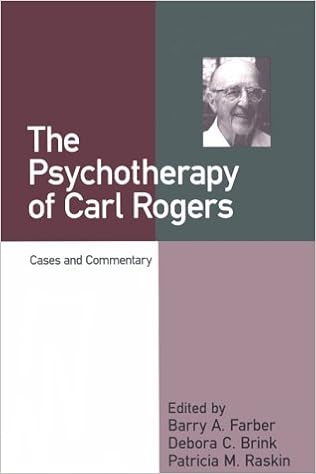
By Umberto Galimberti
Read or Download La casa di psiche PDF
Similar psychoanalysis books
Jeanine Herman (tr. )
Julia Kristeva refracts the impulse to hate (and our makes an attempt to subvert, sublimate, and in a different way technique it) via psychoanalysis and textual content, exploring worlds, ladies, faith, photographs, and the act of writing. Her inquiry spans topics, issues, and figures important to her writing, and her paths of discovery improve the theoretical thoughts which are so attribute of her thought.
Kristeva rearticulates and extends her research of language, abjection, idealization, woman sexuality, love, and forgiveness. She examines the "maladies of the soul," using examples from her perform and the illnesses of her sufferers, similar to fatigue, irritability, and normal malaise. She assets the Bible and texts by way of Marguerite Duras, St. Teresa of Avila, Roland Barthes, Simone de Beauvoir, and Georgia O'Keefe. Balancing political calamity and person pathology, she addresses inner and exterior catastrophes and international and private accidents, confronting the character of melancholy, obliviousness, worry, and the ache of being and nothingness.
Throughout Kristeva develops the proposal that psychoanalysis is the most important to serenity, with its methods of turning again, in retrospect, investigating the self, and refashioning psychical harm into anything valuable and gorgeous. consistent wondering, Kristeva contends, is key to attaining the arriving to phrases all of us search on the middle of forgiveness.
Le moi et le ça (inédit) - download pdf or read online
Le Moi et le Ca, paru en 1923, est los angeles clé de voûte de ce qu'on appelle los angeles "seconde topique" chez Freud. A l'empilement pyramidal de l'inconscient, du pré-conscient et du conscient (première "topique" de l. a. psychanalyse) succède une notion du système psychique plus fluide, interactive et dialectique, dans laquelle le Moi s'avère très lié à l'inconscient, lequel ne coïncide plus avec le refoulé.
Lacan: The Unconscious Reinvented by Colette Soler PDF
Has Jacques Lacan's impression on psychoanalysis fairly been assessed? His formula that the Freudian subconscious is "structured like a language" is famous, yet this used to be in simple terms the start. there has been then the greatly new thesis of the "real unconscious". Why this step? trying to find the Ariadne's thread that runs all through Lacan's ever-evolving educating, this booklet illuminates the questions implicit in each one step, and sheds new mild on his revisions and renewals of psychoanalytic ideas.
Download e-book for kindle: Toward a Psychology of Uncertainty: Trauma-Centered by Doris Brothers
On account that trauma is a completely relational phenomenon, it really is hugely unpredictable, and can't be made to slot in the clinical framework Freud so in demand. In towards a Psychology of Uncertainty: Trauma-Centered Psychoanalysis, Doris Brothers urges a go back to a trauma-centered psychoanalysis. utilising relational structures concept, she exhibits that reviews of uncertainty are constantly remodeled via the regulatory techniques of daily life corresponding to feeling, understanding, forming different types, making judgements, utilizing language, growing narratives, sensing time, remembering, forgetting, and fantasizing.
- The Possibility of Love: An Interdisciplinary Analysis
- The Art of the Ridiculous Sublime: On David Lynch's Lost Highway (Occasional Papers (Walter Chapin Simpson Center for the Humanities), 1.)
- Death and Identity: Being and the Psycho-Sexual Drama
- Seeing With The Mind's Eye: The History, Techniques and Uses of Visualization
- Sigmund Freud: En su tiempo y el nuestro
- Taboo Subjects: Race, Sex, and Psychoanalysis
Additional info for La casa di psiche
Sample text
II, p. 340. 1. L’età romantica come epoca della disillusione A differenza di tutti i popoli della terra, l’uomo occidentale un giorno ha detto “Io”. L’ha annunciato Platone e l’ha esplicitato Cartesio. La psicologia ha catturato questa parola e ne ha fatto il centro della soggettività, dispiegando una visione del mondo a partire da questo centro. A mettere in crisi tale centralità fu nell’Ottocento la filosofia romantica. Schelling prima di tutti, e dopo di lui in modo esplicito Schopenhauer, per il quale ciascuno di noi è abitato da una doppia soggettività: la soggettività della specie che impiega gli individui per i suoi interessi, che sono poi quelli della propria conservazione, e la soggettività dell’individuo che si illude di disegnare un mondo in base ai suoi progetti, che altro non sono se non illusioni per vivere e non vedere che a cadenzare il ritmo della vita sono le immodificabili esigenze della specie.
Lacan, La science et la vérité (1966); tr. it. La scienza e la verità, in Scritti, Einaudi, Torino 1974, vol. II. 22 Esiodo, Opere e giorni, in Opere, Utet, Torino 1977, p. 291, v. 694. 23 Luciano Sofista, fr. 43, 21, in M. Untersteiner, Sofisti. Testimonianze e frammenti, La Nuova Italia, Firenze 1949-1962, vol. II, p. 124. 24 G. Anders, Die Antiquiertheit des Menschen, vol. II: Über die Zerstörung des Lebens im Zeitalter der dritten industriellen Revolution (1980); tr. it. L’uomo è antiquato, vol.
Vol. X, p. 582. 16 S. Natoli, L’esperienza del dolore. , p. 265. 17 F. Bacone, Instauratio Magna, Pars secunda: Novum Organum (1620); tr. it. La grande instaurazione, Parte seconda: Nuovo organo, in Scritti filosofici, Utet, Torino 1986, Libro I, § 3, p. 552: “Scientia et potentia humana coincidunt, quia ignoratio causæ destituit effectum. Natura non nisi parendo vincitur, et quod in contemplatione instar causæ est, id in operatione instar regulæ est (La scienza e la potenza umana coincidono, perché l’ignoranza della causa fa mancare l’effetto.



